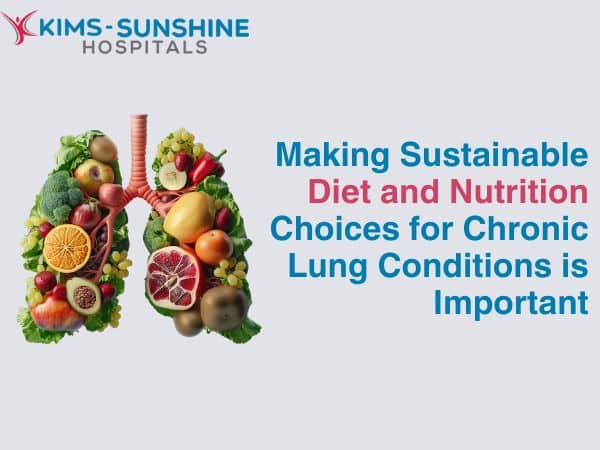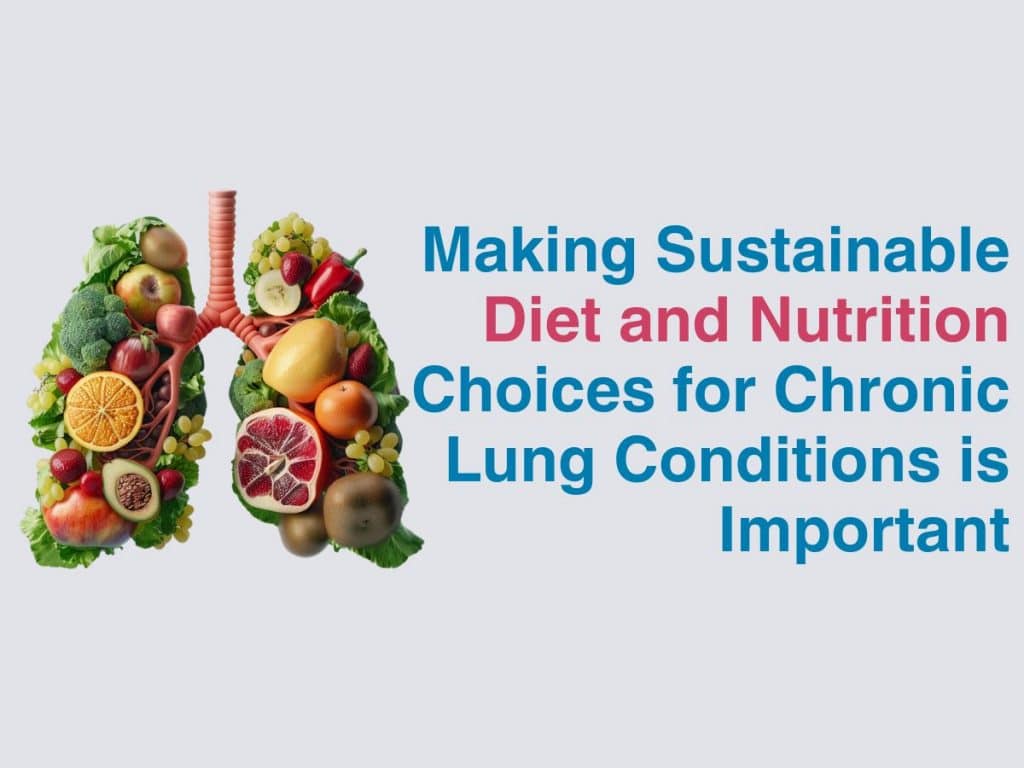
Making Sustainable Diet and Nutrition Choices for Chronic Lung Conditions is Important

The respiratory system is one of the most important organ systems in the body. The reason is simple- without adequate oxygenation of blood, our body cannot function. Did you know that if your brain goes without oxygen for about 5
minutes or longer, then you are essentially brain dead and cannot be revived? While this is a very drastic scenario, other cases like ILD (Inflammatory Lung Disease) or COPD (Chronic Obstructive Pulmonary Disease) or even asthma are
manageable. You are prescribed drugs (including steroids) based on the magnitude of symptoms you present with. Some people also notice their symptoms worsening if they eat a particular kind of food. Let’s see how that may occur.
Best Foods for Chronic Lung Conditions
While Western medicine advocates for an “eat everything” approach, ayurveda is in stark contrast. But we think common sense needs to prevail in this case- if you have had symptoms after eating something specific, and this has happened
repeatedly, then you are better off avoiding it or eating it in very low quantities. This will ensure that you have addressed your trigger. A balanced diet will do wonders in this regard.
Foods to Avoid with Chronic Lung Disease
Avoid highly processed and sugary foods. Highly salty foods, or too much dairy intake should be reduced. Dairy when digested forms a molecule called casomorphin which increases mucus production in the body. A simple carbonated soda is
also bad news- it can exacerbate bloating and make it harder to breathe. Fried foods are also a big no-no.
Foods That Reduce Mucus in Lungs
Increased inflammation leads to mucus production in the lungs. So, the best way to address this issue is to look for ways to reduce the inflammation in the first place. Do that by eating lots of garlic, pepper, onions or adding spices
like turmeric, black pepper, red chilli powder, cardamom etc. Drink lots of water. Coffee or tea increase mucus production, so avoid large quantities. A diet rich in fibre is your best friend.
Role of Antioxidants in Lung Disease Management
Our lungs produce a particular group of enzymes which have the superpower to neutralise free radicals- called superoxide dismutases(SOD). Eating fruits, vegetables and protein rich foods can help in the long run by reducing inflammation
and bloating. They can also reduce stress caused by smoking. Antioxidant therapy is being researched presently, with limited success. The antioxidants found in a good diet can help prevent the immune system from working overtime.
Omega-3 Fatty Acids and Lung Health
Including supplements in your diet is also another way to protect lung function. They may be magnesium, omega-3 fatty acids, vitamins C, A, D, E etc. Talk to your physician about which one would work best for you. This is because some
supplements may NOT work well with your drug regimen of choice. But, we would like to say that getting all the nutrients you want from food is better than relying on supplements exclusively.
Conclusion
It is easy to conclude that making certain changes in your lifestyle is key- eating a balanced diet, hydrating well, not smoking or drinking and incorporating some sort of exercise daily. All these ensure that you have less production
of free radicals than usual, meaning lower possibility of inflammation. This means you can manage your symptoms better, and in a more feasible manner.
Frequently Asked Questions

Dr. J. Raghunath Reddy
MBBS, MD (Pulmonary Medicine), FCCM (NIMS)
HOD & Sr. Consultant Pulmonologist, Critical Care & Sleep Medicine Specialist






